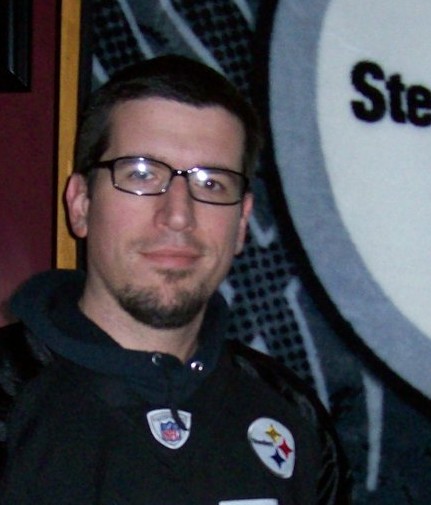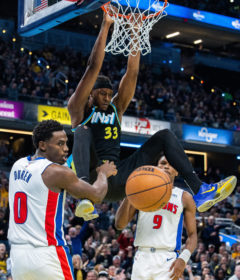Calinger: Relating to Jonathan Martin

By J.W. CALINGER
ISL Correspondent

I don’t know what it’s like to play professional football, which means I don’t know what it’s like to play on the offensive line for the Miami Dolphins. I don’t know all the details of the situation between Dolphins linemen Jonathan Martin and Richie Incognito. I do know what it’s like to have a job – I’ve been working since I was 16 – and I know what it’s like to have my opportunities and my career in general hampered because of factors other than how well I do my job.
Because of my psychological wiring – I have Asperger’s Syndrome and ADD – I generally can do my assigned tasks very well, but I’m very poor at social interaction. As a result, I have a rough time handling unwritten rules and customs and, as a result, supervisors have passed me over for promotions, subtly made me feel unwelcome, or made it more difficult for me to do my job. Politics exist in every workplace, and there’s a certain amount of schmoozing that people in nearly every office, retail store and, I suppose, locker room expect.
I’ve interviewed for supervisory positions, only to have managers tell me, bluntly, that while I’m technically qualified for the job, they couldn’t promote me because the people I’d supervise wouldn’t want to listen to me the way they would listen to other candidates for the position. I’ve been shut out of discussions because the “in crowd” didn’t want to invite me to go drinking with them on a weeknight and, even if they did, I probably wouldn’t have gone – I hate noise, and I hate tables with too many people. I’m intelligent, a good worker, I can learn and manage my moods with a little help, and I generally can conceive ideas that can make where I work more efficient, but that often hasn’t mattered to those over me, because I think it’s ridiculous to observe certain unwritten rules and customs.
Sometimes, I’m as guilty as anyone of being a little more willing to deal with people I like, but for the most part, I like to think I judge people, in professional situations, by how well they do their jobs; it’s how I want people to judge me. Strangers and even friends often find my attitude anywhere from silly to bordering on sociopathic; we like to make connections on personal levels, which is why businesses like to compare customers to honored guests in the owners’ homes. At some point, though, I think my attitude makes more sense. The way things often are and even more often have been – basing a co-worker’s value on unwritten rules – has resulted in everything from overt bigotry to dismissing perfectly good people simply because they don’t fit someone’s macho idea of how a person should be.
I am thankful, of course, that I never have been hazed. My high school didn’t have any goofy expectations of how freshmen should treat seniors, and most jobs I’ve had made newbies feel relatively welcome and at home. The closest I’ve come to hazing was when I joined the Army in 1994 – I was discharged for medical reasons in the middle of Basic Training, so I do not claim to “have served” – and went through the same official initiations as everyone else.
Of course, I have heard of hazing in other jobs and situations. My freshman year in college, a student died because he was forced to drink and, while searching for something on the upper floor of his fraternity house, fell out of a window. Most cases, of course, are smaller and simply are annoying to those who are hazed, as opposed to harmful or fatal; I have friends who work for an industrial company, who have laughed about waiting for the first heavy rain and sending all the “kids” out to take the American flag down from the flagpole, when their building doesn’t actually have a flagpole.
I try to understand hazing and, to some extent, I’ve succeeded. Nearly every culture has its rites of passage, when boys and girls go through some sort of ritual, at the end of which the community considers them men and women. Some of them simply involve surviving by oneself for a number of days, some make a person cringe – like the scene in “Roots” in which Kunta Kinte becomes a man, by the standards of his community – and some, even the rituals of our revered Greek and Roman ancestors, involve practices that by modern law, would earn someone jail time and the legal inability to live within 1000 feet of a church or school. That practice carries on in modern times, in practices from boarding schools and military academies requiring the young to perform gruesome tasks for the old, to fraternity initiations Spike Lee depicted in “School Daze”.
In sports, many of the hazing rituals, though wrong, can be relatively harmless. I’ve heard of teams whose players tell rookies to buy doughnuts for veterans during training camp, tidy lockers, or put on a talent show during said training camp. Others are revolting and even criminal; not only have rookies been pressured to pay thousands of dollars for goods and services for veterans who sometimes make over $10 million per annum, but at times, players even have stolen credit cards from rookies and used them to charge dinners at fancy restaurants for 300-pound linemen, and have gone without legal penalties even when the stories are made public, with no denial from the perpetrators.
More than anything else, I know what it’s like to have people consider me the jerk for challenging the traditions. People have the idea that if a custom has been in place long enough, the custom is How Things Should Be. We don’t like to think that how we’ve been doing things is wrong, and so we don’t allow ourselves to think again about what we’ve been doing. I’ve been called a whiner and a stick in the mud because I find it wrong to require workers to do something that isn’t in their job descriptions. People dislike the way I won’t help them pretend that what they do is OK; they especially hate when I maneuver them into saying outright what they want me to do – apparently, wrongdoing is more palatable when we don’t have to say exactly what it is we’re doing.
While I’ve had it rough at times in the workplaces, I won’t even pretend to know the magnitude of what it’s like for people in sports or sports-entertainment jobs. On one hand, I wish I could have played sports when I was young enough to have had a shot in succeeding athletically; on the other hand, even assuming I would have had the athletic ability to succeed, I probably would have failed because of the unwritten customs. If I were a professional wrestler, I would have been booked poorly because I would have been unwilling to drink myself silly with other “rasslers” – I think getting drunk is a huge waste of time and money – and if I were a football player, I probably would have been beaten or had my property damaged or stolen because I would have declined a request that turned out to be a de facto requirement. Shoot, I might have been driven to fight the teammates who hounded me, only to be blamed if I caused them serious bodily harm that rendered it impossible for them to perform on Sunday.
We don’t know all the facts concerning what happened between Incognito and Martin, and I don’t think we ever will. In this case, teammates are going to be teammates, and while they may speak truthfully to the Commissioner’s office or to legal authorities, they won’t rip Incognito in the press, which I understand. I am, however, happy to see people finally talking about the issue of harassment in a place that clearly is Macho Central. In an era in which we finally are starting to understand how unacceptable it is to demean someone for one’s race, gender, or sexual orientation, it’s good to see people saying it also is unacceptable to hound someone who is a little introverted, or who is unable or unwilling, for other reasons, to observe ridiculous customs.
It’s really easy to call Mr. Martin a softie or sissy for having left the team because he’s been hounded. It’s harder to understand that blocking and studying of the playbook are, or should be, enough to earn him a place on the team. As in so many cases, though, the difficult thing is the right thing. Those who find the victim, for want of a better term, in the wrong should remember him the next time they feel a little less like part of their team because they don’t “play ball” in the unofficial sense, or because they don’t follow rules which, at the end of the day, have nothing to do with the function of the company.






